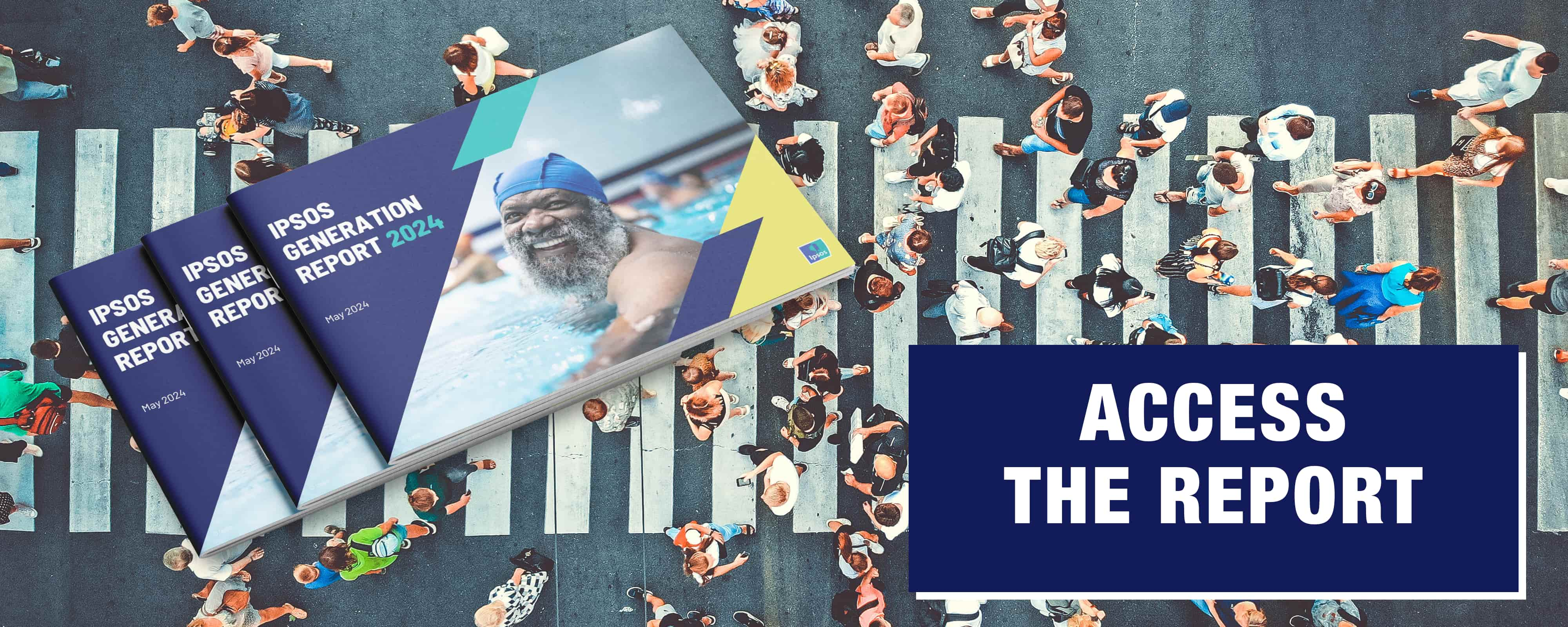Ipsos Generations Report 2024: Are we prepared for population decline?
The second edition of the Ipsos Generations Report finds that most people don’t know what generation they belong to, explores the business opportunities brands risk missing out on by ignoring mature adults, and demonstrates why demographic changes are no longer just a political issue
In our new report we explore whether generational terms can travel across borders, whether Gen Z are the first ‘global’ generation, and why businesses – not just policymakers – now need to prepare for population decline. Key findings include:
- Demography is politics. Soon it will be a business issue too. Global population decline (set to begin after the middle of this century) and decreasing population growth rates (happening right now) will significantly impact workforce planning, pension systems, and economic growth models. Policymakers and businesses need to adapt to the realities of ageing populations and consider the substantial market of wealthy older adults.
- Did you know that in the US, while mature adults make up just 25% of the population, they hold 73% of the assets?
- Gen Z are, probably, the first truly global generation who exhibit a unique set of characteristics, including higher levels of stress and loneliness, a tendency to form online relationships, and more liberal social attitudes, albeit with caveats based on gender and geography.
- As digital natives, they may form transborder 'global tribes' with a specific and lasting generational culture that both unites them globally and sets them apart locally.
- When you were born, and where you were born matters. The global use of generational labels like ‘Baby Boomers’ can be problematic. Varying cultural and historical contexts across countries result in different ‘collective’ experiences, raising questions about the relevance of concepts like the ‘baby boom’ period.
- From the “Born Free” generation in South Africa to “Die Generation 1989” in Germany, there are many different cultural and contextual reference points.
- Globally, people have a limited understanding of generational terms.
- While 58% of Americans have heard of Gen Z, only 24% in China have and only 8% in India, despite extensive media coverage around this age group.
- And this doesn’t just apply to the much-written-about Gen Z, only 34% across 29 countries can correctly identify which generation they are part of.
- Generalisations only get us so far. Businesses and policymakers must embrace the diversity that exists among people within a generation.
- Our report highlights emerging differences in social attitudes between men and women among Generation Z. 60% of Gen Z men agree that we have gone so far in promoting women’s equality that we are now discriminating against men, compared to just 40% of Gen Z women, a 20-point difference.
Click below to access the report online and enjoy an interactive experience.




